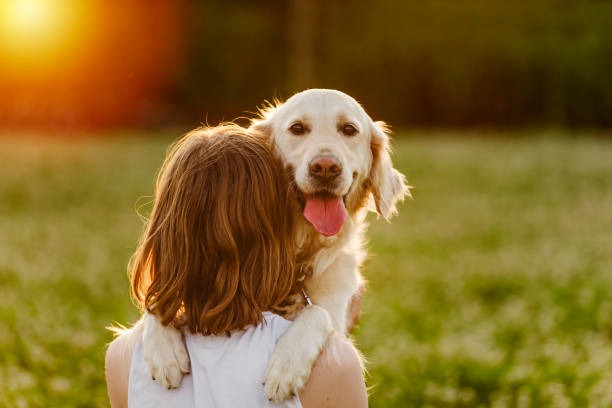
When Should I Start Training My Puppy? Key Development Stages
Bringing a new puppy into your home is exciting but takes a hefty responsibility. One of the biggest challenges for any pet owner is determining the ideal time to start training their furry friend. If you’re wondering when to begin, the good news is that puppies learn from the moment they open their eyes. It’s essential, however, to understand their developmental stages to tailor the training appropriately, ensuring a well-behaved and happy dog.
The Puppy Development Stages
Puppies go through several vital developmental stages very early in life. Each stage represents a unique window of opportunity for learning specific skills:
Stage 1. The Neonatal Period (0-2 weeks)
In these very early days, puppies are primarily focused on survival. They sleep most of the time and rely on their mother for nourishment and basic needs. Training at this stage isn’t really applicable since they still need to interact with their environment.
Stage 2. The Transitional Period (2-4 weeks)
During the transitional period, puppies become more aware of their surroundings. They start to hear, see, and walk for the first time. Introducing simple stimuli, such as gentle human handling and exposure to mild sounds, can be helpful.
Stage 3. The Socialization Period (4-12 weeks)
-
Introduction to Social Skills: This is the prime time to introduce puppies to as many new people, animals, sights, and sounds as possible. This helps minimize fear and increases their ability to cope with changes as they grow.
-
Beginning of Basic Training: Basic commands such as ‘sit,’ ‘stay,’ ‘come,’ and good leash behaviors can be taught in fun, short sessions using positive reinforcement.
Stage 4. Fear Imprint Period (8-10 weeks)
Any frightening experience during this stage may have a more lasting impact on your puppy. Avoiding traumatic events and instead creating positive associations with various experiences is crucial.
Stage 5. Juvenile Stage (3-6 months)
-
Teething and Chewing: This is often when teething occurs, leading to increased chewing. Providing appropriate chew toys and beginning gentle but consistent reinforcement training is critical.
-
Continued Socialization: Keep socializing your puppy safely and start more structured training, like basic household rules and simple tricks.
Benefits of Early Training
Training your puppy early can significantly and positively influence their behavior. If you’re looking for effective dog training Suffolk County, many respected trainers and programs can address various behavioral issues and help strengthen the bond between you and your pet. Here are some benefits:
-
Establishes good habits and helps prevent future behavioral issues.
-
Strengthens the bond between the puppy and their owner.
-
Ensures safety by teaching the puppy to listen and respond quickly in potentially dangerous situations.
Starting Your Training Journey
When you decide to start training, creating a consistent schedule and a positive learning environment is critical. Here are a few tips:
Choosing the Right Trainer
Professional trainers like those in dog training Nassau County can help immensely if you need more confidence in your training abilities. They offer specialized programs tailored to meet your puppy’s needs based on their developmental stages.
DIY Training Tips
For those who opt to train their pups themselves, keep these points in mind:
-
Keep training sessions short and fun.
-
Use lots of praise and treats as reinforcement.
-
Be patient and consistent with your training efforts.
Should You Attend Puppy Classes?
Puppy classes can be a great way to socialize and learn in a structured environment. They provide a safe space for your puppy to interact with others while learning basic commands under professional supervision.
How Much Training Is Enough?
While every puppy is different, a general guideline is short, frequent training sessions. About 5-10 minutes, several times a day, is a good start for puppies. You can gradually extend the training time as they grow and their attention span increases. For specialized advice and personalized coaching, visit North Shore Paws, where experts can offer more detailed programs tailored to your puppy’s needs.
Advanced Training and Development
Once your puppy masters the basics, you can consider more advanced training options to keep them engaged and mentally stimulated:
-
Agility training
-
Obedience competitions
-
Therapy dog training
Health and Nutrition in Training
Proper health and nutrition are fundamental aspects that considerably impact your puppy’s training and overall development. A well-nourished puppy is more apt to be energetic and attentive, making training sessions more effective. Here are key points to consider:
-
Balanced Diet: Ensure your puppy’s diet meets all their nutritional needs. Please consult your veterinarian to choose the best food that supports their growth phase, size, and breed-specific requirements.
-
Feeding Schedule: Consistent feeding times help regulate a puppy’s digestion and establish a routine. This can be beneficial in potty training and setting particular times for training sessions.
-
Hydration: Keep fresh water available during and after training sessions to keep your puppy hydrated and healthy.
Addressing Common Training Challenges
Training a puppy is not without its challenges, but understanding and preparing for common obstacles can make the process smoother:
-
Biting and Nipping: This is normal behavior for puppies but can be unpleasant or harmful. Redirect this behavior by offering chew toys instead of fingers or toes, and discourage biting with a firm “no” or stop playtime by teaching that biting ends the fun.
-
House Training: One more frustrating aspect of puppy training is house training. Establish a consistent schedule for bathroom breaks and use positive reinforcement when your puppy succeeds.
-
Separation Anxiety: Begin training your puppy to handle separation early by starting with short periods apart and gradually increasing the time. This helps prevent anxiety issues from developing.
Final Thoughts
Starting your puppy’s training at the right time is crucial for their development into a well-mannered adult dog. The key is to begin early, be consistent, and adapt to their learning curve throughout various developmental stages. Remember, if you need help, professionals are just a call away.

